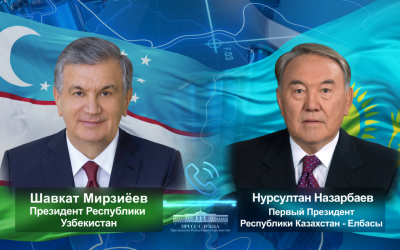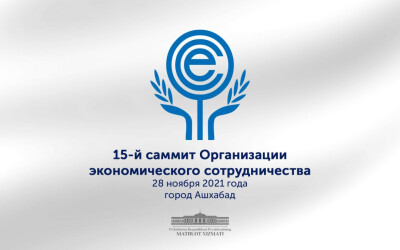President of Uzbekistan discusses new areas of cooperation with the Secretary General of the World Customs Organization

On November 26, the President of the Republic of Uzbekistan Shavkat Mirziyoyev received the Secretary General of the World Customs Organization Kunio Mikuriya, who is in Uzbekistan on a working visit.
The issues of further expanding the areas of mutually beneficial cooperation between Uzbekistan and the World Customs Organization were considered.
Uzbekistan has been a member of the World Customs Organization since 1992. In recent years, there has been a noticeable intensification of interaction with this organization.
In 2019, a roadmap for cooperation was adopted. Uzbekistan has joined the Kyoto and Istanbul conventions, as well as signed the Agreement on participation in the Global Trade Facilitation Programme, within the framework of which 12 events have already been held.
With the assistance of the Organization, since January 2020, an automated Single Window system has been introduced, a Situation Center for the Coordination of Customs Control has been established. Recently, our Customs Laboratory received the status of the Regional Laboratory of the World Customs Organization.
The Higher Military Customs Institute of the State Customs Committee of Uzbekistan is accredited in the Research Program of this international structure.
Assistance is provided to improve the qualifications of customs officers. Over the past few years, over 200 of our customs officers have taken part in the Organization’s short-term training courses.
In addition, regional cooperation is developing. Yesterday a meeting of representatives of the customs services of the region’s countries took place in the city of Tashkent.
At the meeting with Secretary General Kunio Mikuriya, the main attention was paid to the issues of cooperation in improving and increasing the efficiency of the activities of the State Customs Committee of Uzbekistan.
The importance of the implementation of joint events and projects on digitalization, the introduction of advanced international standards, the modernization of customs posts based on the use of intelligent systems, the improvement of the normative-legal framework in combating corruption, and customs violations, training specialists and other areas was emphasized.


Previous

On November 26, President of the Republic of Uzbekistan Shavkat Mirziyoyev had a telephone conversation with the First President of the Republic of Kazakhstan – Elbasy Nursultan Nazarbayev.
26.11.2021Next

On November 28, at the invitation of the President of Turkmenistan Gurbanguly Berdimuhamedov, the President of the Republic of Uzbekistan Shavkat Mirziyoyev will pay a working visit to the city of Ashgabat to attend the Fifteenth Summit of the Economic Cooperation Organization.
26.11.2021





